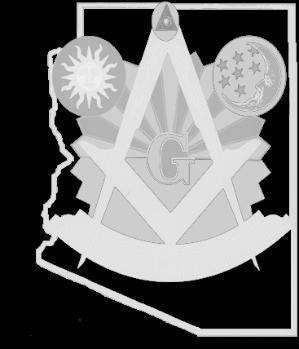
2 minute read
Senior Grand Deacon Worshipful Brother
Senior Grand Deacon Worshipful Brother George R Rusk
Get to Work
Advertisement
Part Three of a four-part series designed to help individuals and lodges manage themselves to be prosperous and healthy.
In the past two articles of this series we talked about seeking balance with all our worldly activities so we can devote time to Masonry and then finding a job at the lodge to help keep it active and functioning. Next, we will discuss those things that may help ensure the success of your lodge.
A simple answer to the question “how can we become a successful lodge” might be to increase your membership. Traditionally Freemasonry does not recruit members. Our membership is based on those who seek knowledge and want to better themselves. This has become a challenge for Freemasonry because of the many other social activities that attract men. Combine a slowdown in new membership, the members leaving because Freemasonry was not attractive to them and an attrition rate that is attributed to deaths, we find we have a slow decline over the years in total membership (Read Masonic Membership Myths Debunked by John L. Belton). As we learn to adjust to this slow decline we must continue to stay at the wheel, steady the course and focus on what works. We may not recruit and we cannot avoid death but we can find a way to keep members from leaving.
A paper from Richardson Masonic Lodge #1214, Richardson, Texas, identifies and explores the 5 major models lodges use to attract and keep members: 1. Facilities and accommodations 2. Events 3. Ritual 4. Charity and 5. Knowledge and education. You can easily identify with each model and the activities associated with it. Your lodge may be practicing one or more of these models and may find some success. There is not a silver bullet solution for all lodges, but these models may provide some interest. The conclusion of the author though was surprising yet logical. After researching each model, he found that the success a lodge experiences was directly proportional to the masonic knowledge of its members! While the mechanics of maintaining a lodge are complicated (ask any secretary) and should be addressed (finances and ritual proficiency for example) the model a lodge should try to focus on is Knowledge Oriented. “Making good men better men”. “This model claims that the instruction, study, education and research into the symbolic meanings of Masonry is what stirs the soul of men to commit themselves to active participation, that Masonry is a way of life and that the effect that it can have on a man’s life is so profound that he is forevermore bound to the Craft.”
The initial reason I entered a Masonic lodge was seeking knowledge and learn more about the philosophy of Freemasonry. Although that innocent young man was quickly disillusioned, he stuck with it. He sought harder to find knowledge and with the help of others he found it. My hope is that we make it easier for new members who are seeking knowledge to find it.



